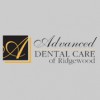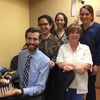In private practice since 1984, Dr. Michaud hails from central New York, having graduated with honors from LeMoyne College and earning a dental degree from the University of Buffalo School of Dentistry. She moved to northern New Jersey in 1983 for a general practice residency at St. Joseph's Hospital in Paterson, New Jersey.
Dr. Michaud is a member of both the Academy of General Dentistry and the American Dental Association. She currently is the New Jersey Dental Association Board of Trustees representative for Passaic County Dental Society. She has served as PCDS president and currently is chair of the Peer Review Committee.
Dr. Michaud is a member of both the Academy of General Dentistry and the American Dental Association. She currently is the New Jersey Dental Association Board of Trustees representative for Passaic County Dental Society. She has served as PCDS president and currently is chair of the Peer Review Committee.
Services
Please call the office at 201-445-1166 or email us at [email protected] We are in the office on Mondays, Wednesdays and Thursdays and some Saturday mornings. We will do our best to explain your treatment options and present you with an estimated fee for your choices. Payment will be expected at the time of services for preventive and restorative treatments.
Dental hygiene visits involve not only cleaning your teeth, but evaluating your soft tissue. Oral tissues are examined for changes in color or shape. Periodontal tissues are examined for health. Fillings and other restorations such as crowns or bridgework are checked for cavities. Teeth are checked for wear, cracks and looseness.
Crowns are custom-fitted restorations which cover the visible part of a tooth. They are usually recommended when a tooth with a very large filling shows new decay or breaks off a cusp. A crown sits over a tooth somewhat like a thimble and holds the tooth together. A crown may also be recommended for a tooth with visible cracks or one that has significant discoloration.
Bonding is a conservative method used to enhance the aesthetics of your smile. Bonding can be used to correct cracks or gaps in teeth, as a new filling after a cavity has been removed, or to mask stained or discolored teeth. Bonding is composite resin which is placed and sculpted directly onto the tooth.
Dental bridges are the most conventional way to replace missing teeth. Your existing teeth serve as anchors to support the bridge. Teeth on either side of a space (called abutment teeth) provide strength to support a non-removable replacement tooth or teeth (called pontic teeth). Bridges are made from metal and porcelain, alloys, gold, or zirconia to provide strength and durability.
Reviews

Be the first to review Teresa A Michaud DDS.
Write a Review



